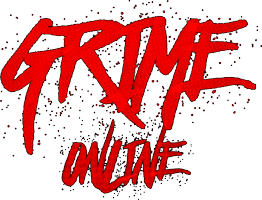“Sheesh” is the kind of exclamation that’s used by Kermit the Frog, logged-on teens, and exasperated grandparents alike. Midway between a playful chide and a curse word that isn’t actually a curse, it’s a word we typically associate with either the old-at-heart or the innocence of youth. But over the past few years, it’s taken on a second life as one of the most ubiquitous ad-libs in hip-hop.
Most commonly deployed in a high-pitched tone that channels a kind of triumphant faux-frustration, but with seemingly endless room for variation, “sheesh” is just one of many examples of rappers taking a specific sound and turning it into a personalized artistic signature. (See: Westside Gunn’s machine gun-esque “brr,” Birdman’s cooing bird sound, or Gucci Mane’s chilly “BURR!”) But whether it’s used to mark the ending of a bar, introduce a rapper’s arrival (see: Drake on Meek Mill’s “Going Bad”), or give added emphasis to a statement (see: Amine on “Back & Forth” featuring Rico Nasty), “sheesh” is the rare ad-lib that seems increasingly to belong to everybody. Perhaps owing to its language-agnostic, aurally pleasing appeal, the term has been popping up in songs by artists working across the world, from the U.S. to the U.K. to Russia.
Recently, “sheesh” became the core of a popular TikTok meme in which a person humbly accepts some type of victory or praise while pointing at their inner forearm to indicate they have “ice in their veins,” a move popularized by Minnesota Timberwolves point guard D’Angelo Russell. The meme—#sheesh has 4.5 billion views on the app—has started seeping back into music in turn, yielding the song “Ice In My Veins (Sheesh),” a thumping track by Ohio rapper and YouTuber Gameboy Jones, who raps from the perspective of an anime character.
As a lyrical seasoning in hip-hop, “sheesh!” is extremely versatile. Some archetypal examples: Atlanta rapper Young Thug decorated the chorus of his 2016 banger “Digits” with sheeshes, delivered in a staccato, sneeze-like fashion. On Drakeo the Ruler’s 2017 song “Flu Flamming,” the L.A. rapper announces his arrival with a prolonged “sheeeeesh!” before the beat kicks in, like he’s winding up for his verse. Over the UK, the impossibly deep-voiced rapper Giggs has been using the word for years, and as it’s caught on he’s kept at it: On “Straight Murder,” his 2020 collaboration with Dave, Giggs sprinkles a “sheesh, sheesh!” after rapping “Private, talkin’' bread / That’s that language.”
Since the initial sheeshwave of the late 2010s, the ad-lib has gone global. Last year, Russian-speaking rappers 13kai & Kassi employed the ad-lib on a song called “Микросхемы” (English translation: “Microchips”). Puerto Rican artist Brray peppered it into reggaeton beats on “El Querendón”, although he’d already named an entire song in its honor in 2019. The proliferation of “sheesh” as an ad-lib isn’t limited to rap, either. In 2020, New Zealand singer Benee employed the ad-lib, enhanced with an echo effect, in an eponymous electro-pop song featuring Grimes.
According to linguist and Indiana University professor of English Michael Adams, “sheesh” is a relatively new term. The Merriam-Webster dictionary places its first use in 1955, but Adams dates an early appearance in pop culture to October 2, 1958, when a now-iconic Yogi Bear could be heard saying it on episode of The Huckleberry Hound Show, where he made his television debut. (Incidentally, Gigg’s “sheesh” ad-lib on “Straight Murder” comes just several lines after the London native name-drops Yogi Bear.)
Here, Adams explains, “sheesh” seemed to serve the function of a child-friendly curse word—one that sounds a bit like “shit,” and also a bit like “Jesus,” but without any of the social or religious taboos.
Discussing its use in hip-hop, Adams observed that “sheesh” clearly has a “musical aspect” to it, possessing both a simple architecture and its sonic flexibility. “It’s such a minimal word,” he said. “And yet, there are people out there making the most of it.”
On “Chosen,” an undeniably catchy cut featuring Tyga and Ty Dolla $ign that has been making the rounds on the radio and aux cords since its 2020 release, up-and-coming Los Angeles rapper, singer, producer, and songwriter Blxst does just that, personalizing the term with his own pronunciation. (The way he says it, it sounds more like “shee!”)
Speaking with VICE, he said he’s been using the sound in his music since as far back as 2013—typically uploading an audio file of the ad-lib that he recorded around that time to maintain a consistent sound. Once he started recording features for other artists, though—such as his recent contribution on “Perfect Timing,” from YG and Mozzy’s joint album Kommunity Service, his “shee” became a fixture.
“It provides a bold font to my lyrics,” Blxst said. “It’s making a statement. I look at it like an exclamation point, too.”
He says he sees it as a branding signature, something akin to a producer tag. He’s also realized that if he doesn’t include it, people take notice. “People will ask, ‘Yo, why didn’t you put your shee on there? That’s what makes it fire,’” he said. “So I was like, ‘Alright, I’ma just start including it in everything.’”
The universality of the word “sheesh” explains its proliferation: It’s the Swiss Army Knife of ad-libs, a musical garnish and lyrical fill-in, one that can be used across languages and genres. It is also perhaps the only sound that can also serve as a listener’s response to what they just heard. After hearing a bar that’s potent and clever, sometimes all you can do is scrunch your face and let out a hearty "sheesh!"
By signing up, you agree to the Terms of Use and Privacy Policy & to receive electronic communications from Vice Media Group, which may include marketing promotions, advertisements and sponsored content.

